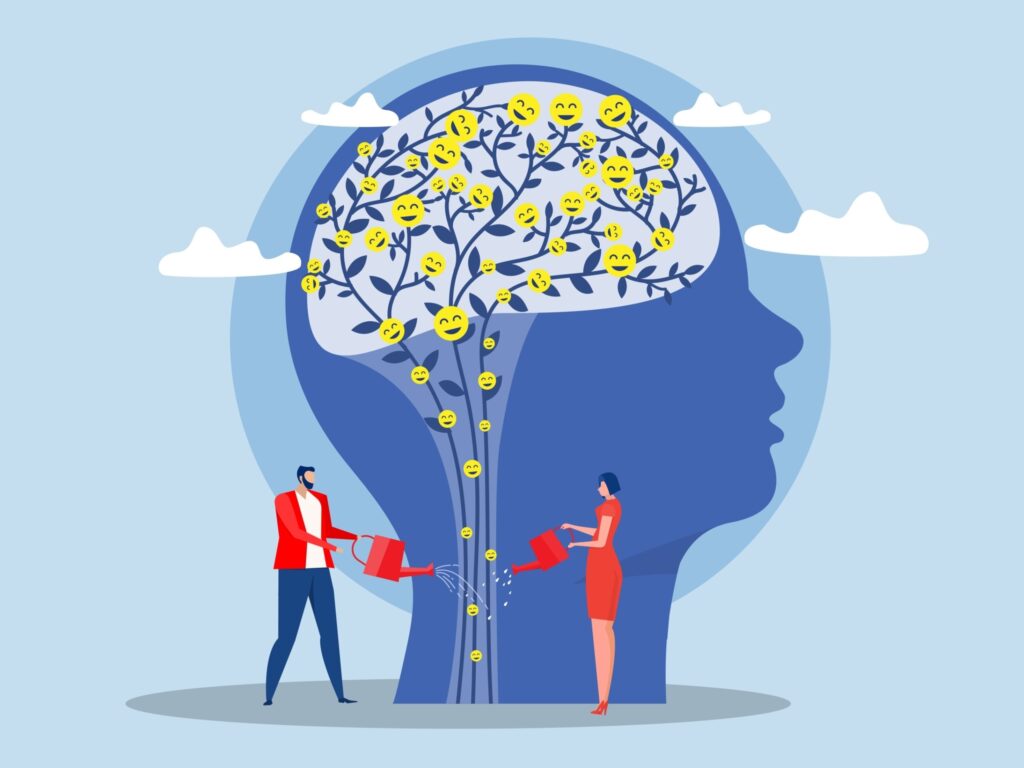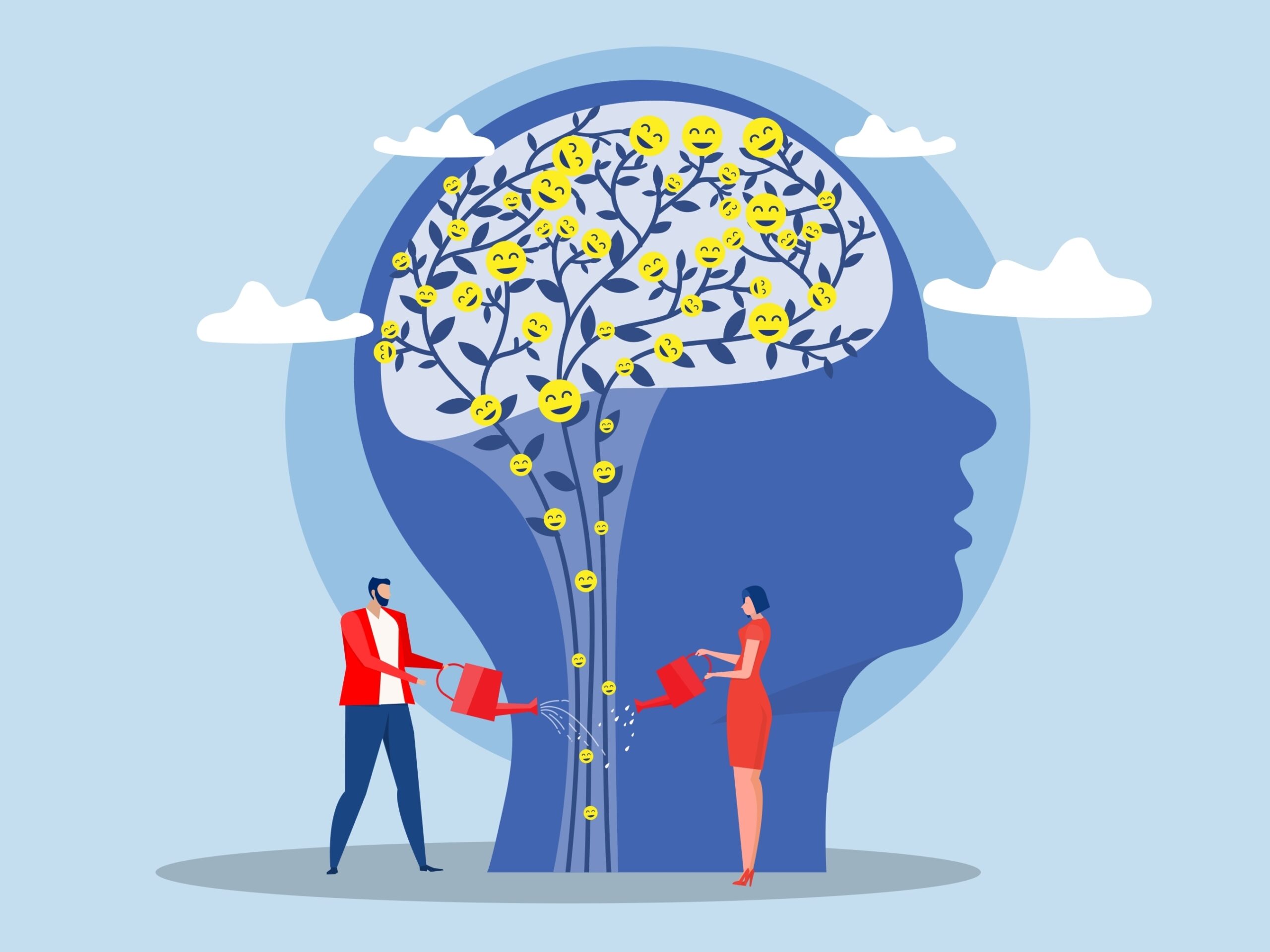
A growth mindset is not just a motivational buzzword; it’s a scientifically-backed approach to thinking that can rewire your brain for success and resilience. Introduced by psychologist Dr. Carol Dweck, the concept of a growth mindset emphasizes the belief that intelligence, abilities, and talents can be developed through effort, learning, and persistence. But what’s happening beneath the surface of this empowering philosophy? Let’s dive into the neuroscience of growth mindset and explore how it transforms your brain.
The Brain’s Plasticity: A Foundation for Growth
The human brain is not static; it is highly plastic—a property known as neuroplasticity. Neuroplasticity refers to the brain’s ability to reorganize itself by forming new neural connections throughout life. This adaptability enables individuals to learn new skills, recover from injuries, and even reshape how they think.
When you adopt a growth mindset, you engage in behaviors and thought patterns that stimulate neuroplasticity. For example:
- Learning a new skill creates new neural pathways.
- Overcoming challenges strengthens existing connections.
- Reframing failures as opportunities encourages the brain to adapt and grow.
In essence, a growth mindset fuels the brain’s natural ability to evolve and improve.
How Growth Mindset Changes Brain Activity
1. Increased Activation in the Prefrontal Cortex
The prefrontal cortex, located at the front of the brain, plays a crucial role in decision-making, problem-solving, and goal setting. Studies show that individuals with a growth mindset exhibit higher activity in this region when faced with challenges. This heightened activity reflects their ability to approach obstacles with optimism and strategic thinking.
2. Strengthened Dopaminergic Pathways
The neurotransmitter dopamine is associated with motivation and reward. When you achieve a goal or overcome a challenge, your brain releases dopamine, reinforcing positive behaviors. People with a growth mindset experience a stronger dopamine response because they view challenges as rewarding rather than threatening. This response creates a positive feedback loop, encouraging continuous effort and persistence.
3. Enhanced Learning Through Effort
MRI studies reveal that students who believe in the malleability of intelligence (a hallmark of growth mindset) show increased brain activity in regions associated with learning and memory. This suggests that a growth mindset enhances the brain’s ability to absorb new information, especially during difficult tasks.
The Role of Challenges and Mistakes
Mistakes as Brain Builders
When you make a mistake, your brain doesn’t see it as a failure—it sees it as an opportunity to adapt. Research shows that:
- Mistakes trigger a neural signal called error-related negativity (ERN) in the brain, which helps you recognize the error.
- The subsequent reflection and adjustment strengthen neural pathways, making it less likely for you to repeat the same mistake.
A growth mindset amplifies this process by encouraging you to embrace mistakes as part of the learning journey.
Challenges and Neural Growth
Tackling challenges activates the brain’s hippocampus, a region responsible for learning and memory. Struggling with a complex problem or mastering a new skill forces the hippocampus to work harder, promoting the growth of neurons and the formation of synaptic connections.
The Science of Self-Talk: Rewiring Beliefs
Your inner dialogue has a profound impact on your brain’s development. Negative self-talk, such as “I’m not good at this,” limits neural activity and reinforces a fixed mindset. Conversely, positive affirmations like “I’m not good at this yet” stimulate regions of the brain associated with problem-solving and optimism.
Repeatedly using growth-oriented self-talk rewires the brain by:
- Reducing activity in the amygdala, which is responsible for fear and self-doubt.
- Increasing connectivity in the default mode network, which supports creativity and self-reflection.
The Link Between Effort and Dopamine
Effort and reward are deeply interconnected in the brain. Studies have shown that the harder you work toward a goal, the more dopamine your brain releases when you succeed. This release:
- Reinforces the behavior that led to success.
- Encourages you to pursue similar challenges in the future.
A growth mindset amplifies this mechanism by equating effort with progress rather than failure, creating a cycle of motivation and achievement.
The Long-Term Effects of a Growth Mindset on the Brain
1. Improved Resilience
People with a growth mindset are more resilient in the face of adversity. The brain develops stronger neural networks for emotional regulation, helping you bounce back faster from setbacks.
2. Enhanced Cognitive Flexibility
Cognitive flexibility is the brain’s ability to adapt to new information or unexpected changes. A growth mindset trains your brain to pivot and find creative solutions when faced with challenges.
3. Lifelong Learning Capability
By consistently engaging in learning behaviors, a growth mindset keeps your brain active and adaptable well into old age. This reduces the risk of cognitive decline and promotes overall mental health.
Practical Strategies to Activate Your Brain’s Growth Potential
1. Reframe Negative Thoughts
When faced with a setback, challenge negative thoughts by asking:
- What can I learn from this?
- How can I improve next time?
2. Seek Feedback
Constructive feedback activates the brain’s learning centers and provides valuable insights for growth.
3. Embrace the Power of “Yet”
Add “yet” to self-doubts. For example:
- “I don’t understand this concept” becomes “I don’t understand this concept yet.”
4. Practice Gratitude
Reflect on your progress and achievements. Gratitude enhances neural connections associated with positivity and motivation.
5. Set Incremental Goals
Break large tasks into smaller, achievable steps to maintain motivation and track progress.
Final Thoughts: A Mindset for Life
The science behind a growth mindset reveals its transformative power, not just on your outlook but on your brain itself. By embracing challenges, learning from mistakes, and persisting through effort, you can rewire your brain to achieve more than you thought possible.
Remember, adopting a growth mindset isn’t about being perfect—it’s about believing in the potential for progress. As you nurture this mindset, your brain will adapt, grow, and open doors to new possibilities. So, take the first step today. Your future self will thank you.
